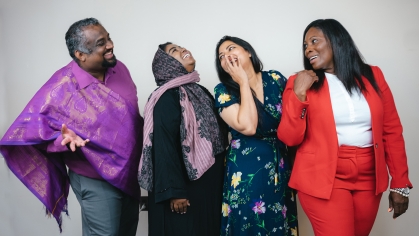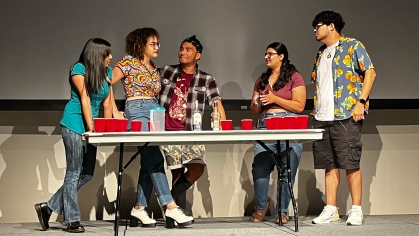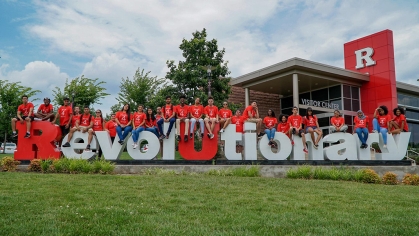Dining Services Partners with Center for Adult Autism Services to Offer Employment Opportunities
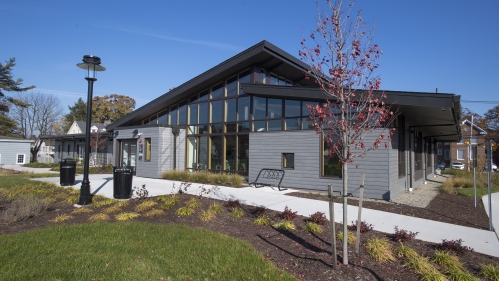
Douglass campus is known for its grassy lawns and towering trees, Douglass Residential College, and Rutgers’ Department of Animal Science, among much else. However, a lesser-known building stands at the corner of Dudley Road and Nichol Avenue: the Rutgers Center for Adult Autism Services (RCAAS), which provides support programs for autistic adults who want to live independent and fulfilling lives.
RCAAS, which began taking participants in 2017, features four main programs that address participants’ needs for social support, clinical services, academic help, and integration into the workforce. One of these programs, Supporting Community Access Through Leisure and Employment (SCALE), focuses on supporting participants’ success in employment and independent life.
In the view of the center’s founding executive director, Dr. Christopher Manente, this is one of the most neglected parts of autistic adults’ lives, as between half and three-fourths of autistic adults actively seeking work are unemployed.
“Employment is just one of the indicators of a poor quality of life for this population,” he said. “It’s required to succeed at a lot of other aspects of adult life such as having health care, gaining access to transportation, consuming healthy food, or just having the independence and freedom to live your adult life.”
To help address this issue, the SCALE program has maintained a longstanding partnership with Dining Services in the Division of Student Affairs, along with other departments across the university, who collaborate to offer participants employment opportunities.
In fact, before RCAAS was founded, Dining Services used to hire employees from the Douglass Developmental Disabilities Center (DDDC), which was founded in 1972, and which still serves children between the ages of three to twenty-one with autism spectrum disorders.
“I used to offer students from the DDDC the chance to work in the Douglass Café," said Joe Charette, a former director of Dining Services who began working at Rutgers in 1989. “I would have them come in and try different jobs to see which ones they liked and were well-suited for.
“In Dining Services, we do a lot of things that are quite mundane,” Charette continued. “And it just so happens that for a lot of folks on the autism spectrum, repetitive tasks like washing dishes or setting tables might not be as mundane or annoying as they would be for others.”
Today, 10 out of 21 total participants in the SCALE program work as a part- or full-time employees at Dining Services. If necessary, they receive one-on-one supervision with coaches from the Graduate School of Applied and Professional Psychology (GSAPP), who ensure that they can work as seamlessly as possible in their role with Dining Services.
“We’ve got people now in every single dining hall and several cash operations that come to work with their job coach every single day, and the staff members in Dining are happy to have them,” said Charette. “They’re extremely dependable, and we think that it’s been a wonderful partnership.”
SCALE program participants agreed with Charette’s analysis.
“I serve food to customers,” said Scott, who started at Henry’s Diner and who now works at Busch Dining Hall, where he makes pizza for customers. “It’s fun, and it’s a great experience in serving food.”
Chris, a full-time employee in Busch Dining Hall and a fellow participant in the SCALE program, echoed some of Scott’s observations. “Working for Dining has taught me a lot. I’ve learned how to make pizza dough, work in the commissary, and make sandwiches.”
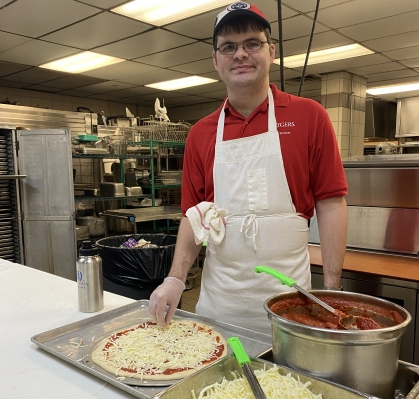
Both participants have made strides while working at Dining Services. For example, Scott has passed his ServSafe Food Handler Certification, and no longer needs a one-on-one coach with him at work. Chris, a full-time employee, is now capable of cleaning his workspace, preparing food, and making custom orders.
Whitney Pubylski-Yanofchick, a behavioral analyst at the RCAAS, also highlighted developments that both participants had made in their personal lives. While working at Dining Services, Scott has learned to independently take the bus across campus, while Chris has gotten a credit card and is looking at available apartments in the area.
“We want to make sure that each participant has a job that they want, and also that they become more independent,” said Pubylski-Yanofchick. “We’re there to see that they have the lay of the land, but they do the work themselves—inside and outside of the workplace.”
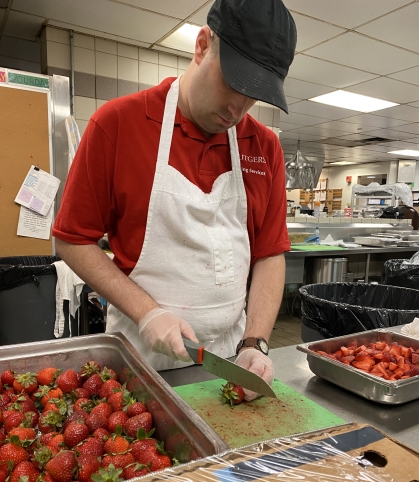
For Dr. Manente and his coworkers, as well as the participants of RCAAS, the center is more than a job-training program—it is a crucial place for building the structures that will help autistic adults, as well as modeling what centers like this could look like in other places and universities across the U.S.
“There’s nothing else like this program that both provides clinical services and advocates for neurodiverse adults at our university,” said Dr. Manente. “That’s a feather in our cap and the cap of Rutgers, but it also means that the infrastructure for this kind of support needs to be expanded here and created everywhere else.”
To learn more about RCAAS, you can visit their website here.

